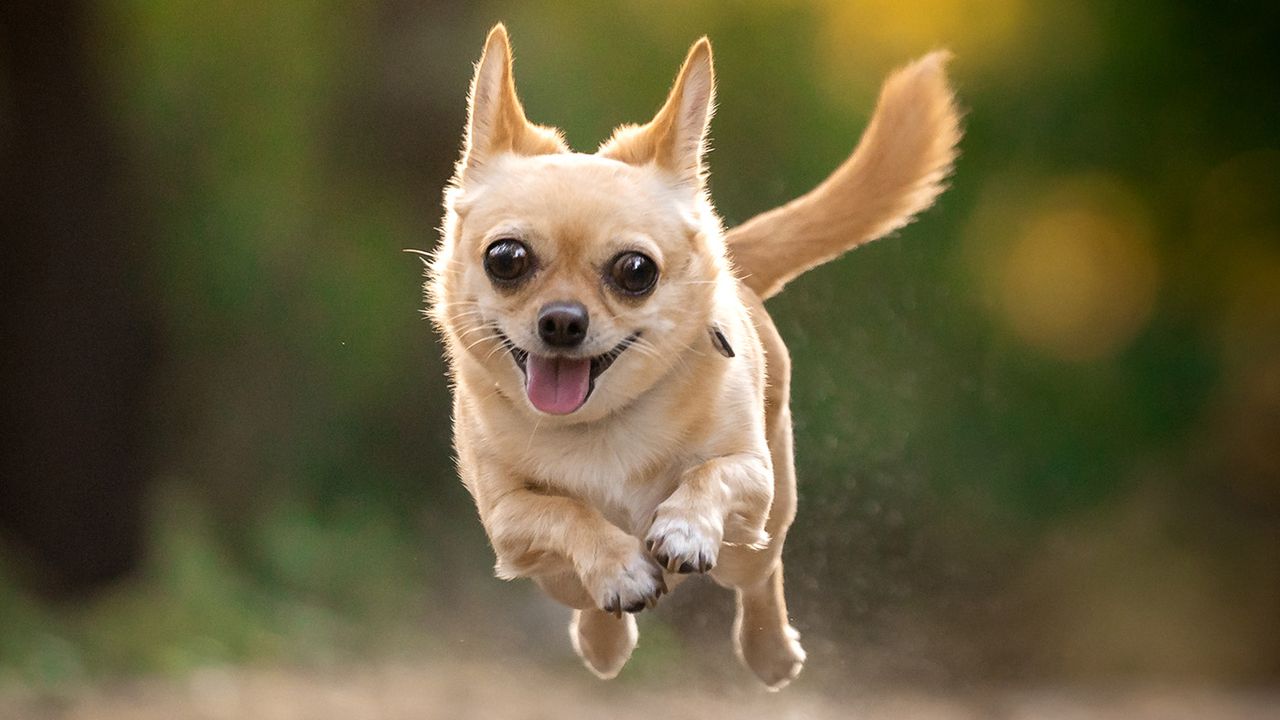
We are famously a nation of dog lovers, but what's a person to do if they're living in a city? Or an apartment without a garden? Or busy juggling the demands of work and parenting with limited time for walkies? For many, one of the smallest dog breeds is the answer. Well suited to a range of environments, smaller dogs often adapt better.
Small dogs are also easier to physically handle and manage, more travel friendly and – in some cases – have lower exercise needs. Many small breeds often outlive their larger peers, plus their smaller size means lower food costs, and potentially less wear and tear on the house too.
If all that appeals to you, we have written about small dog breeds and teapcup breeds, before. But in this article, we have dug into the data to come up with the 10 smallest dog breeds taking into account both weight and height. But we also spoke with a qualified vet, Dr Rebecca MacMillan, on issues to consider when bringing home a small dog.
Smallest dog breeds
Our list below takes into account both height and weight metrics, rather than just looking at one metric and in doing so it highlights some breeds you might not think of.
You might also be surprised to find it doesn’t include some very popular small dogs, such as the shih tzu or French Bulldog, which while compact are generally heavier or taller and therefore pushing them out of the top 10.
1. Chihuahua
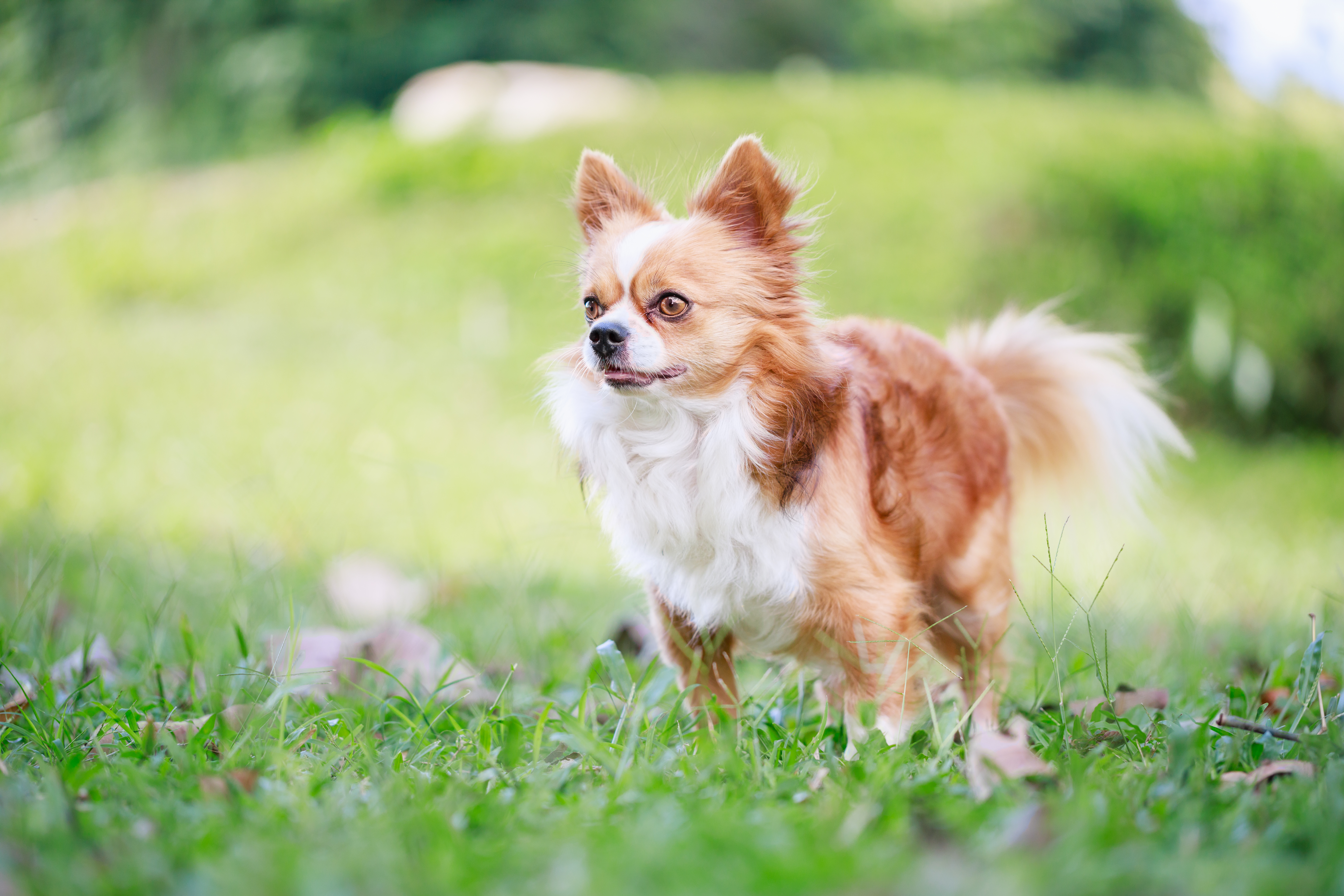
Height: 5–8 inches (to the shoulder)
Weight: Up to 6 lb
Dinky in both weight and height, it's little surprise the Chihuahua nabs top spot. One of the oldest dog breeds dating back to the Aztec civilisations, these tiny dogs are big on personality.
Despite their little stature these dogs can be fearless and are totally devoted to their favourite person. Watch out for jealousy issues! They'll also need regular dental care.
2. Pomeranian
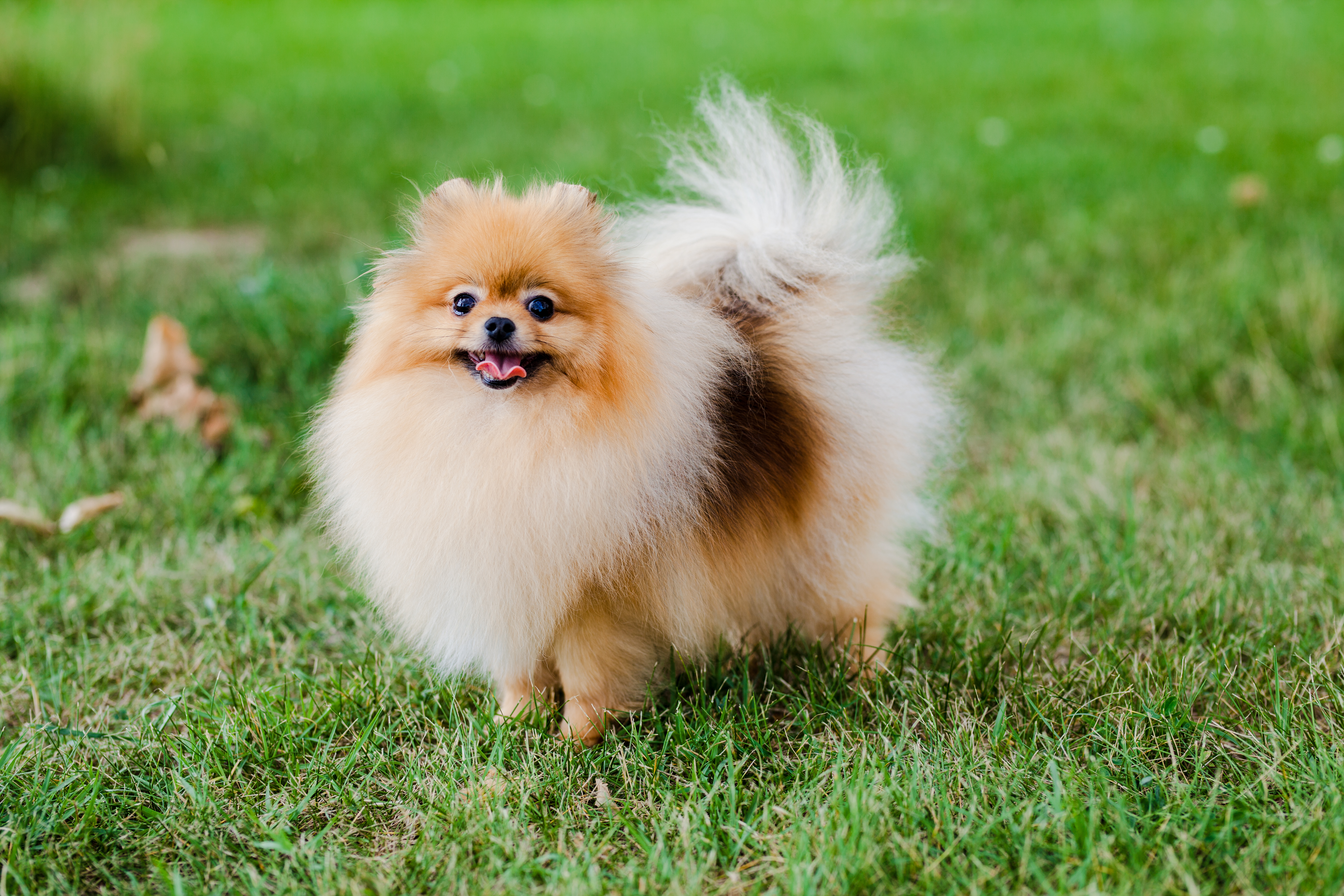
Height: 6–7 inches
Weight: 3–7 lb
With their adorable fluffy bodies, fox-like face and energetic temperament, the Pomeranian might be small but they have bags of energy. This is because they descended from large sled dogs in the Arctic, but have been bred down to tiny form.
Speaking of, while they're a little heavier than other toy breeds, their teeny height and condense build give them a higher rank overall. Their thick double coat will need plenty of grooming and you'll need to keep them happy with regular exercise.
3. Toy poodle
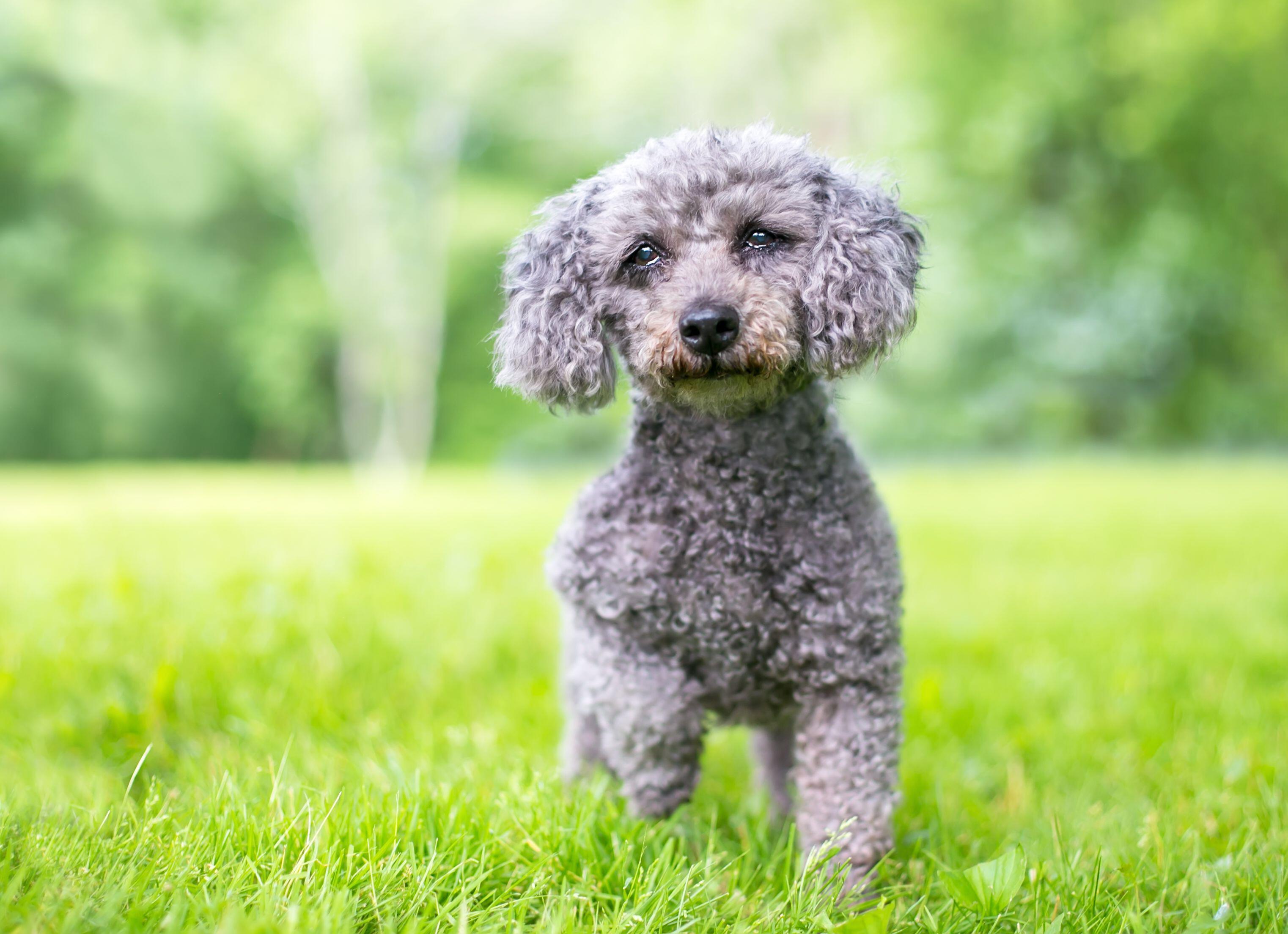
Height: Up to 10 inches
Weight: 4–6 lb
If you're looking for a pocket size dog that's whip smart, look no further than the toy poodle. Super intelligent and highly trainable, the poodle is considered one of the smartest dog breeds making them naturals at obedience and agility.
While they're slightly taller than their peers, their low weight and slender build puts them firmly in the smallest breed category. But be warned, you'll need to use a professional groomer regularly if you commit to a poodle.
4. Yorkshire Terrier
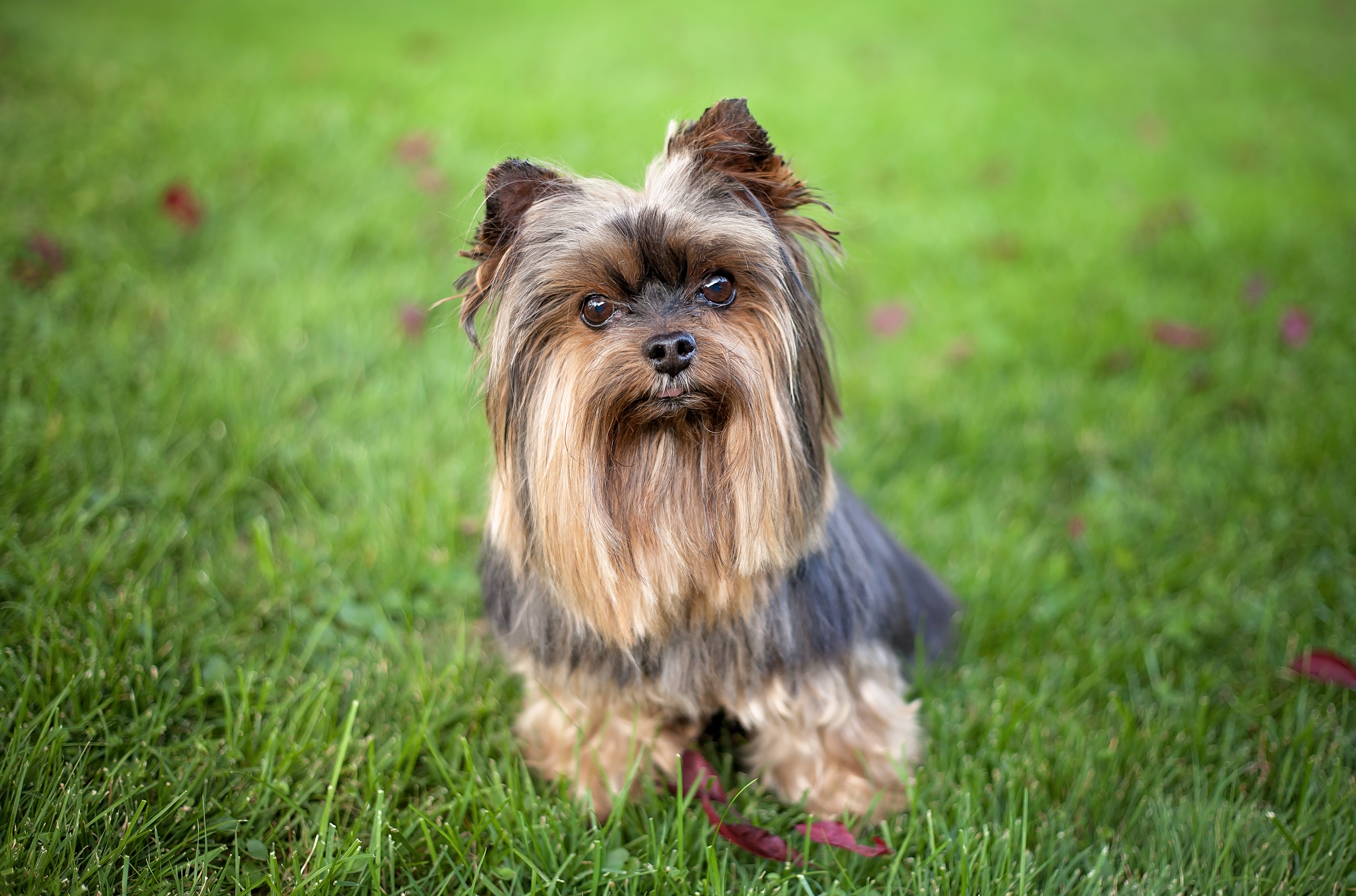
Height: Approximately 7 inches
Weight: Up to 7 lb
With their silky coat and confident nature, the Yorkshire Terrier is a true personality dog. Hailing from Yorkshire where they were bred to catch rats this dog doesn't mind a spot of hard work.
However their steel-blue and tan coat does require maintenance and their loud bark can make them useful watchdogs. If you're looking for a fun and feisty small breed, the Yorkie is an excellent option.
5. Maltese
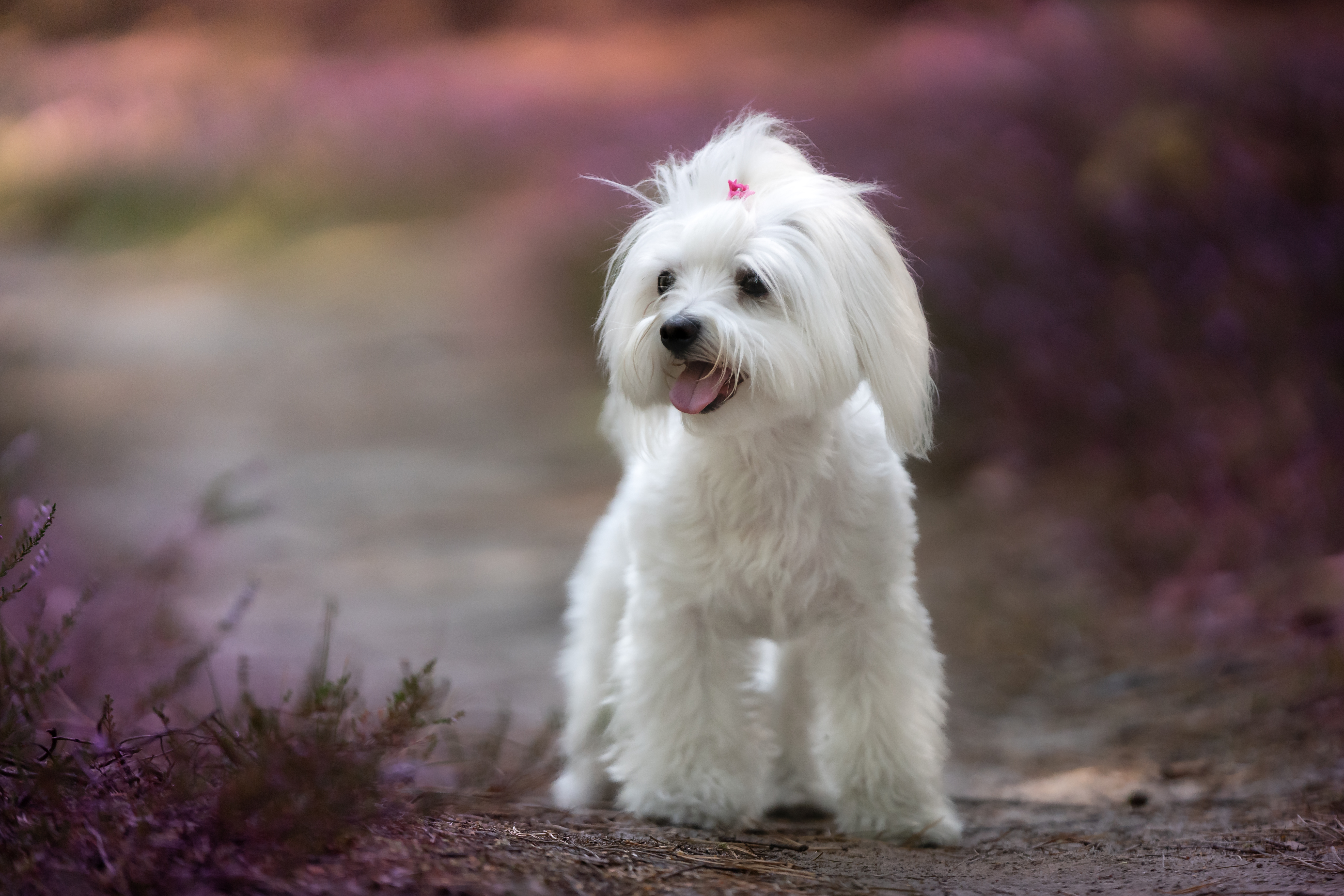
Height: 7–9 inches
Weight: Up to 7 lb (ideally 4–6 lb)
Characterised by their flowing white coat, the Maltese is one of the oldest European toy breeds dating back some 2,000 years. Small dogs get a reputation for having big voices, but Maltese dogs are known for their demure personality and rarely bark.
That stunning coat will require some work to maintain though, including frequent brushing to avoid tangles. If you're looking for a calm companion, the gorgeous and super light Maltese could be for you.
6. Papillon
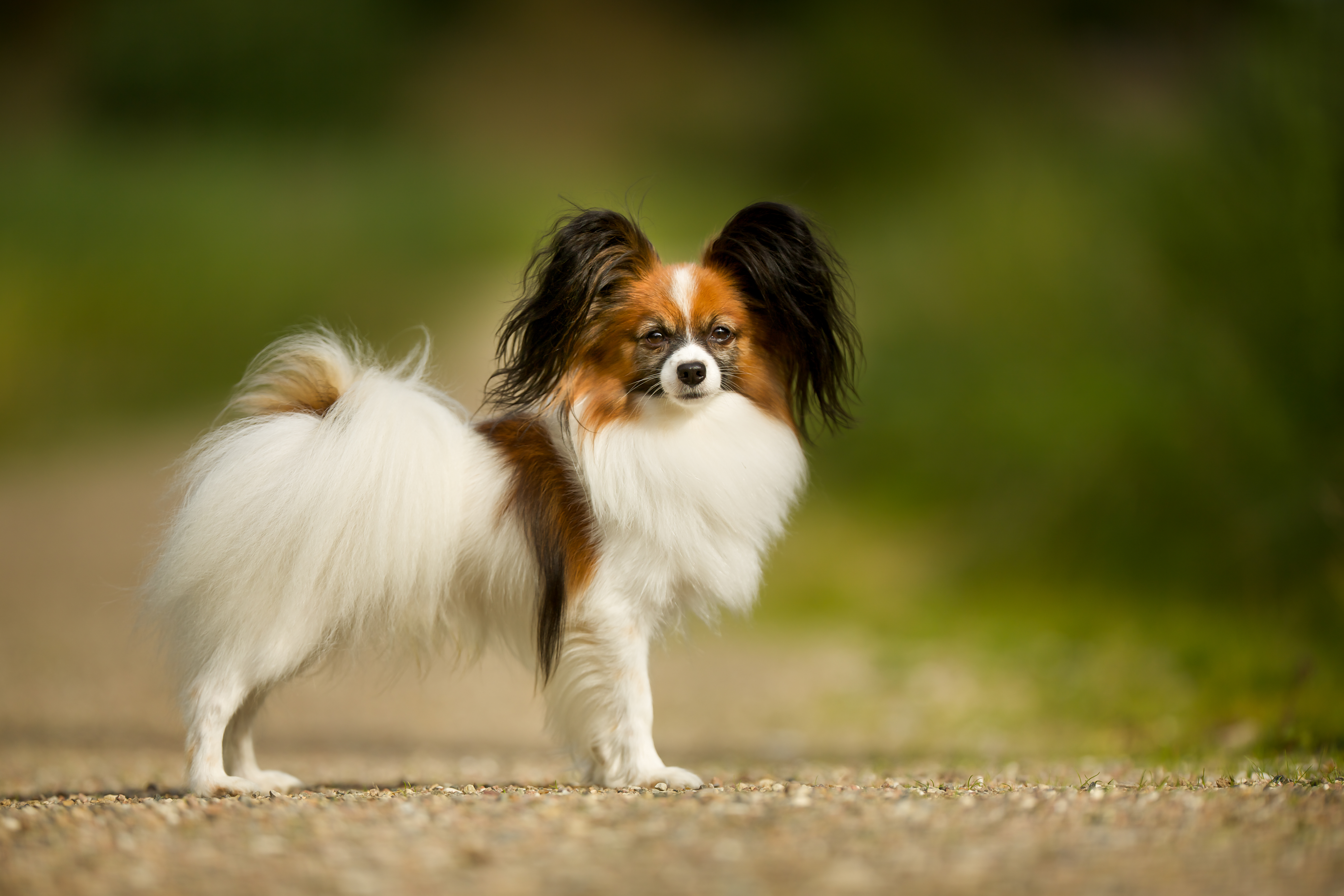
Height: 8–11 inches
Weight: 5–10 lb
Known for their butterfly-shaped ears, papillion translates to butterfly in French. Low weight and short height makes this one of the most petite dog breeds despite their leggy appearance, and yet the papillon is not a pure lap dog.
They are incredibly agile and true athletes in dog sports like agility and obedience. Their lively nature positions them as an excellent option for active households looking for a compact but playful dog.
7. Italian Greyhound
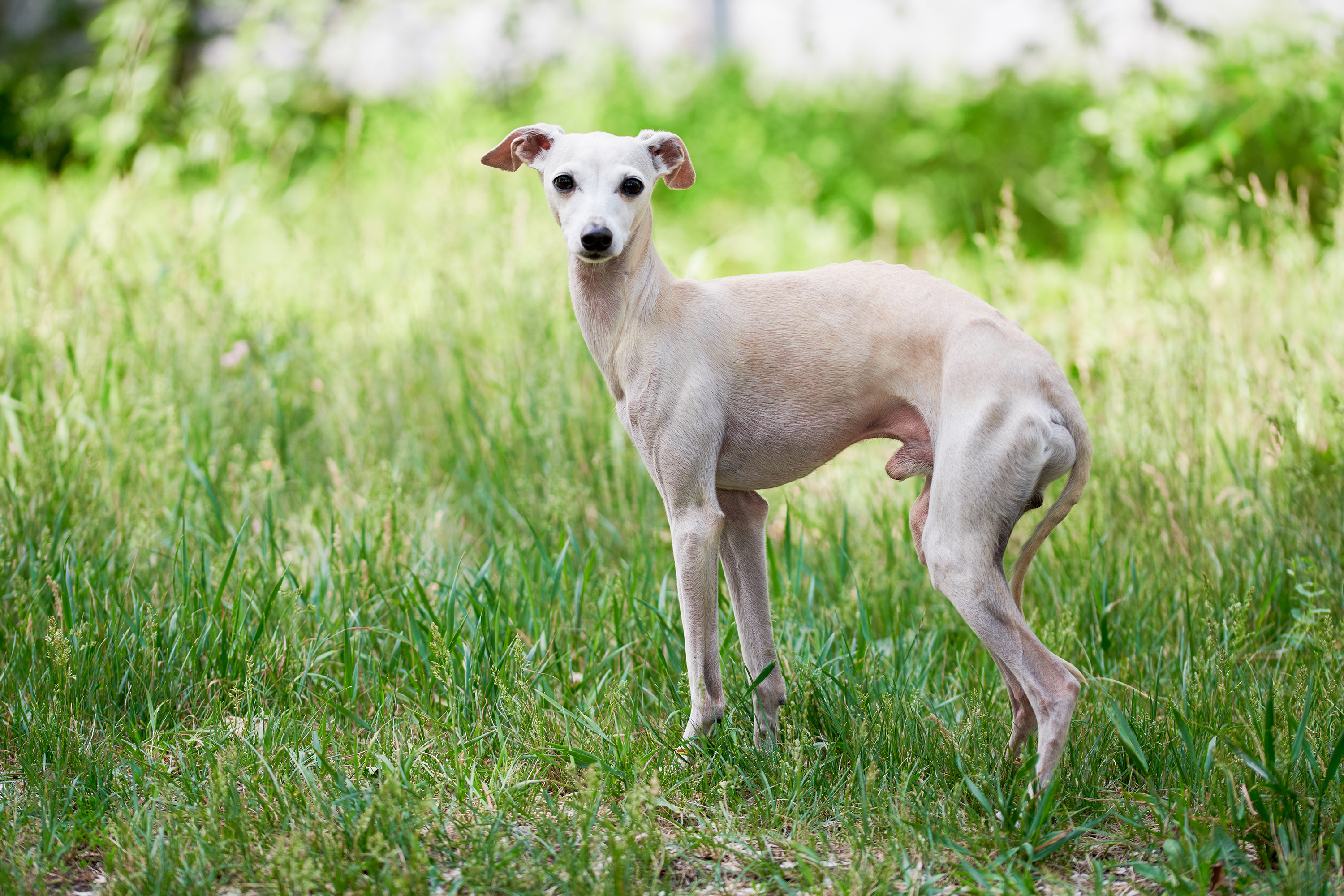
Height: 13–15 inches
Weight: 7–14 lb
A delicate, slender sighthound hallmarked by speed. Surprised by the inclusion of a greyhound? They're often categorised as medium dogs, yet it's a lightweight dog and short in height, despite its long legs.
The Italian Greyhound can reach speeds up to 37 mph, yet once they've been exercised they're gentle creatures who love a sofa snuggle.
8. Brussels Griffon
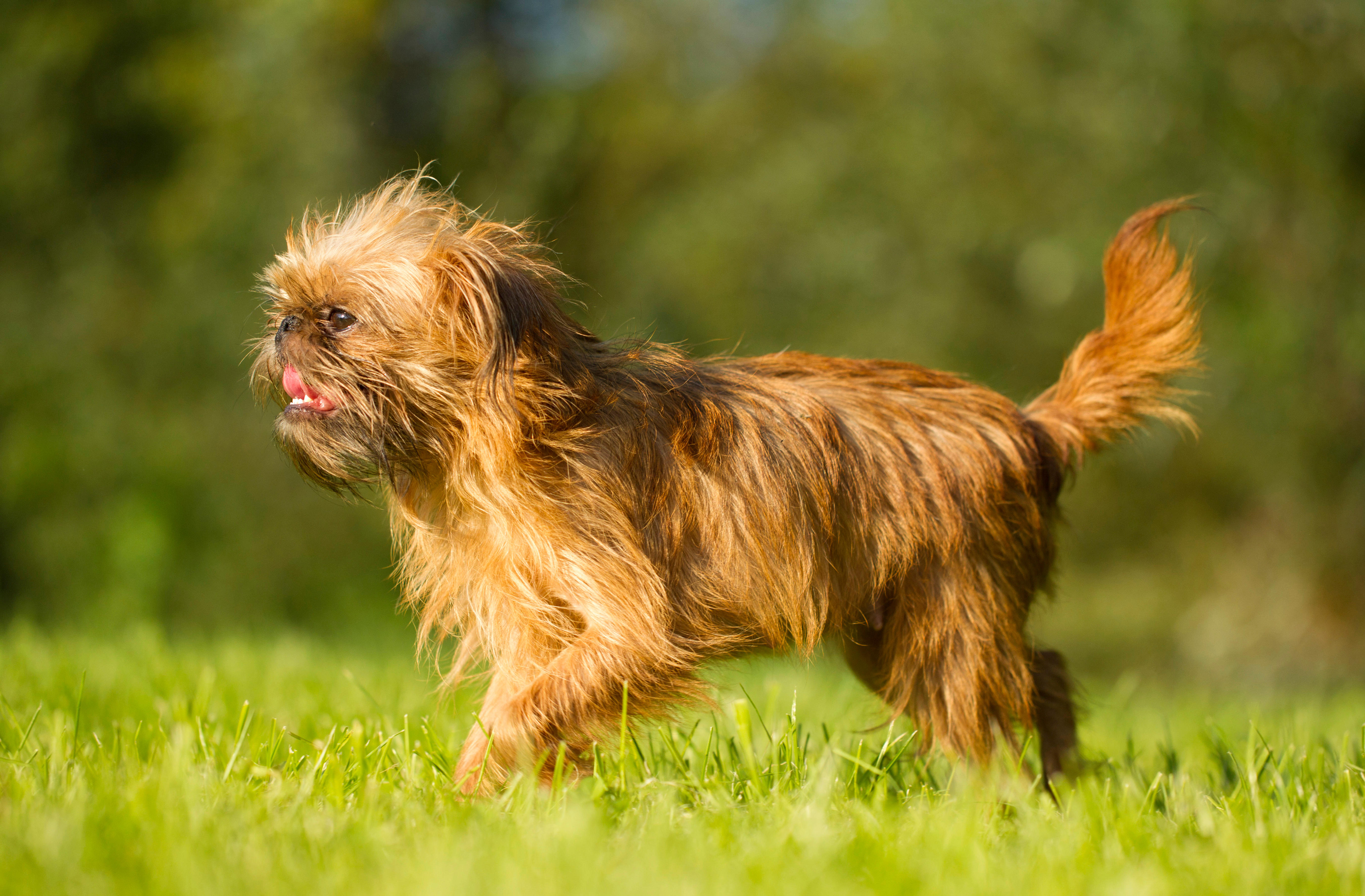
Height: 7–10 inches
Weight: 8–10 lb (not to exceed 12 lb)
You'd have to have a heart of stone not to be charmed by the Brussels Griffon's curiously expressive face. Once bred to hunt rats, they were later adopted by nobility and beloved for their unique, wise appearance.
While it might look like a sturdy dog, the compact height and low weight keep it ranked among one of the smallest breeds. The breed can come with rough, smooth or mixed coats, meaning regular grooming can be required.
9. Japanese Chin
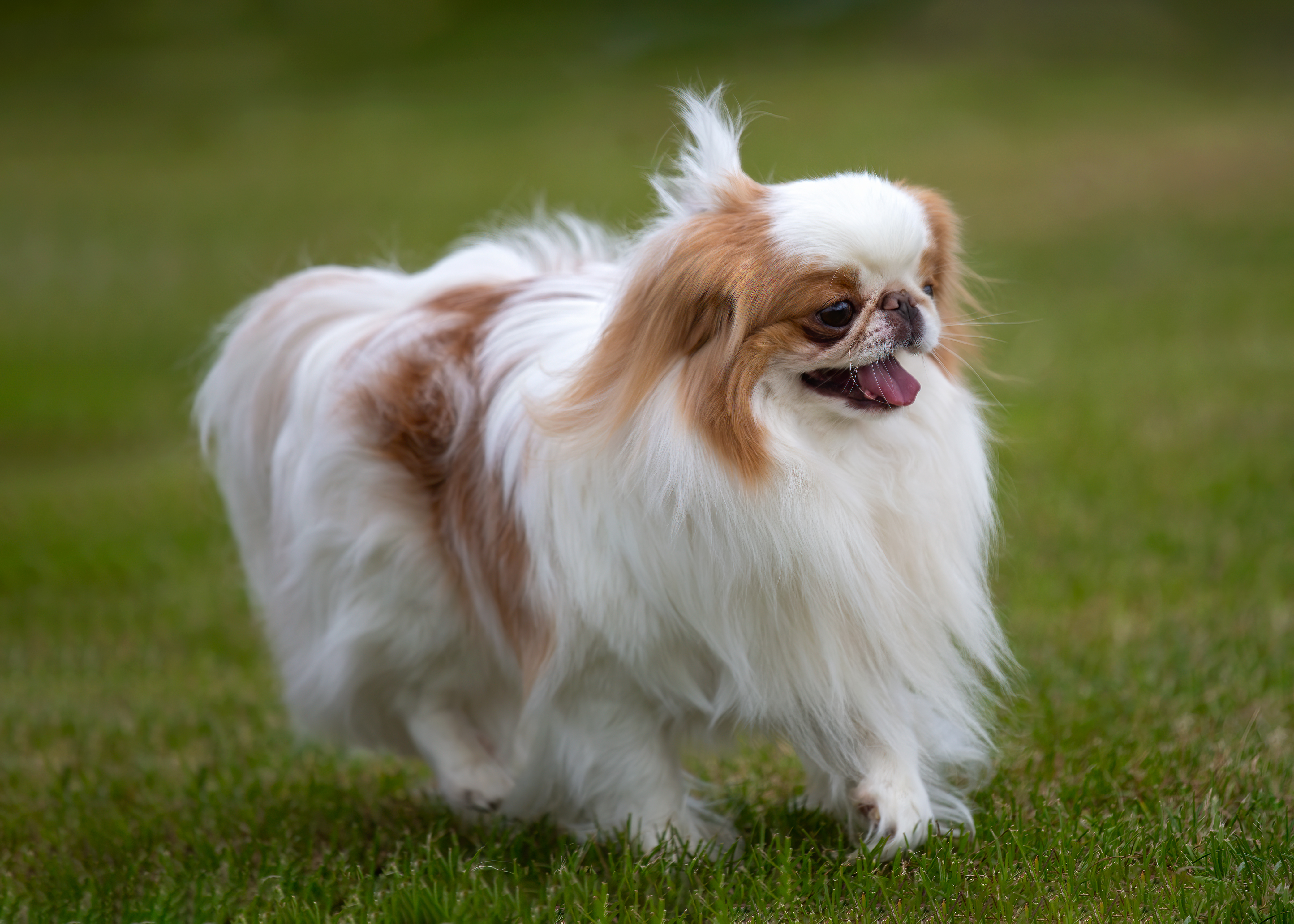
Height: Approximately 10 inches
Weight: 7–11 lb
Once a companion of Japanese and Chinese royalty, the Japanese Chin is an elegant dog characterised by its expressive face and hallmark gait.
Also known as the Japanese Spaniel, this Asian breed is upbeat, lively and intelligent. Their long, silky coat is beautiful, and will require grooming to uphold.
10. English Toy Spaniel (King Charles Spaniel)
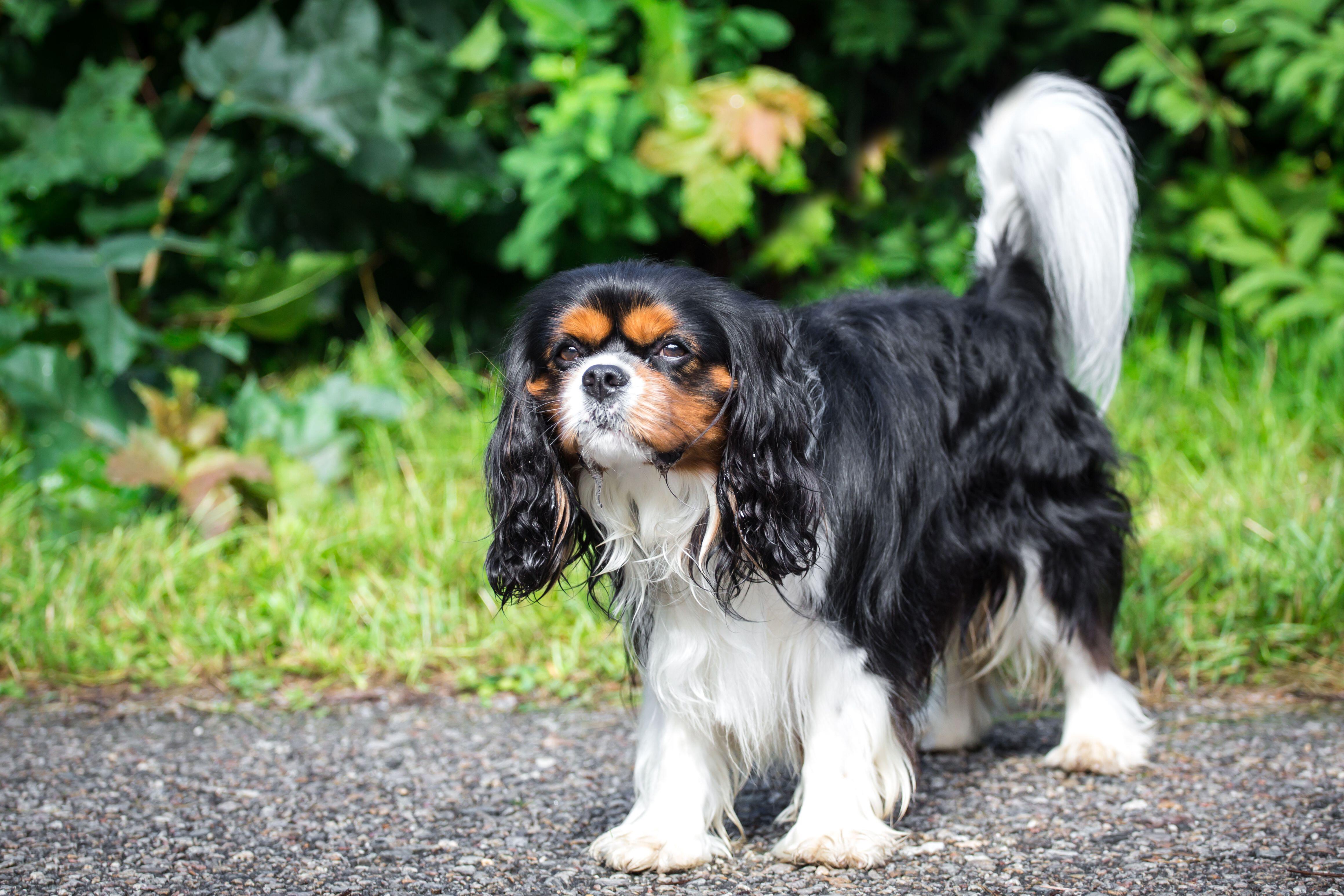
Height: 12–13 inches
Weight: 13–18 lb
Popular with royalty during the Tudor period, the English Toy Spaniel was a particularly popular companion amongst nobility under the reigns of King Charles I and King Charles II.
Bred for companionship, these dogs are gentle, affectionate lap dogs. While they're actually on the heavier side than similar sized dogs, their short stature keeps them firmly in the smallest combined ranking.
Common health issues with small dogs
Dental disease
“Small breed dogs are susceptible to dental disease. Their small, dainty mouths are prone to excessive tartar build up, gum inflammation and tooth loss. Owners need to be proactive about their small dog’s oral hygiene.
“Daily teeth brushing from an early age is recommended, plus professional veterinary dental procedures, as needed,” says MacMillan.
Knee joint issues
“Patella luxation is a joint condition that is very common in little dogs. The kneecap slides out of position in one or both hind legs, causing limping, pain, and the early onset of arthritis.
“Owners should keep an eye out for changes in their pet’s mobility. A skipping gait or hopping for a few strides can be a sign that something isn’t quite right,” says MacMillan.
Windpipe problems
“Tracheal collapse is often seen in small breeds. In this condition the rings of cartilage holding the trachea [windpipe] open become weakened, leading to collapse of the airway. Affected dogs can have a dry honking cough and breathing issues,” says MacMillan.
How to be proactive
“Owners can be responsible by making sure their small dogs attend routine vet checks and receive all their recommended preventative care. You must also seek help if you spot any issues with your pet, don’t turn a blind eye.
“Pet insurance helps give many owners peace of mind, allowing them to access veterinary care more easily. This is especially useful if their small breed dog needs something like orthopaedic surgery or referral to a specialist for a severely collapsing trachea,” says MacMillan.
Read next: Cutest dog breeds







